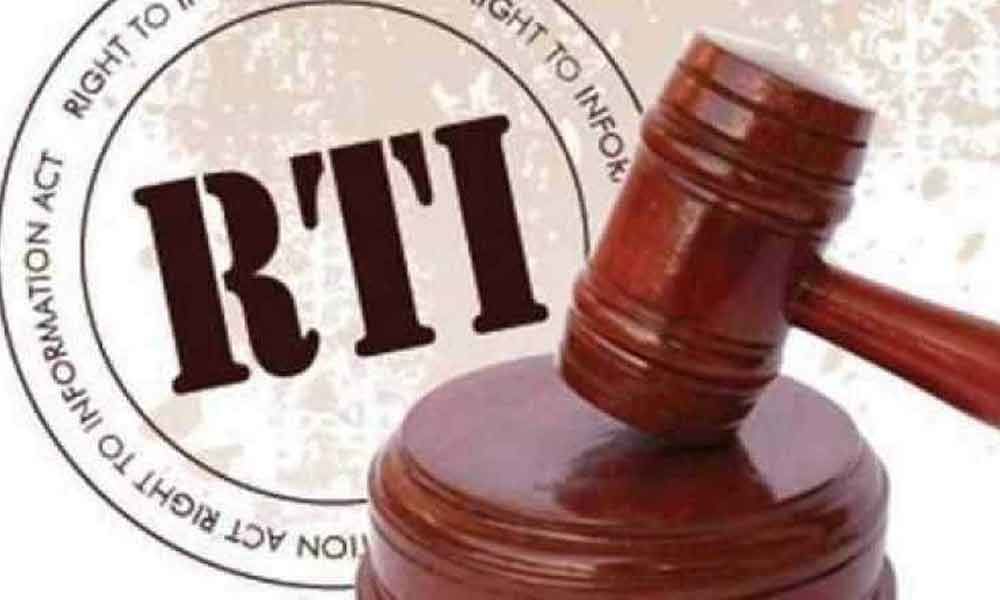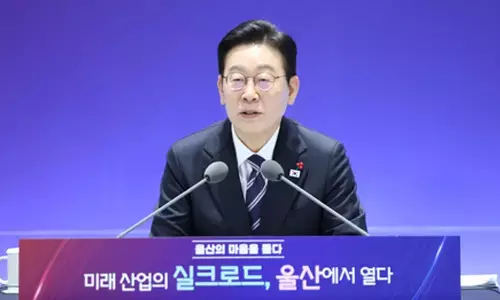RTI (Amendment) Bill will kill autonomy of CIC

The Government pressed with its numerical strength in Lok Sabha and passed the Right to Information (Amendment) Bill, 2019 which will be a back stab to CIC and deathblow to RTI.
The Government pressed with its numerical strength in Lok Sabha and passed the Right to Information (Amendment) Bill, 2019 which will be a back stab to CIC and deathblow to RTI.
It should have been referred to select committee or allowed the Parliamentary Standing Committee to deliberate elaborately with focus on the good and bad consequences of the bill before putting it to vote.
It seriously undermines the autonomy of Information Commissions because it reduces the stature of Commissioners, which is now equivalent to Election Commissioner and Judge Supreme Court.
Ever since it came into existence in 2005, the Information Commission had enough authority to issue directions to anybody including cabinet secretary, principal secretary, etc regarding disclosure of information under RTI Act.
As on now the Information Commissioner has a fixed tenure of 5 years or attaining age of 65 year which ever is earlier. It is difficult to remove the Commissioner from office within this term.
This Bill if passed, the guarantee for the term and stature for five years will be removed. This means legislative safeguard to the term of Commissioner is abolished and the of the day will be empowered to prescribe any term, stature Government or salary.
The statements of Objects clearly stated that CIC is not equal to CEC and hence they are amending to reduce the stature. It is not clear as to what kind of reduced status they are going to accord to the CIC and SIC.
For one recruitment the Government may prescribe joint secretary status and three-year term, or for other set of Commissioners, the Government may give four or two years by frequently changing the rules.
Or it may favour other batch recruitment with six-year term and higher salary. The legislature did not give this power to Executive in 2005 Act.
Now Executive is usurping this power from Legislature, without any justification. It will seriously dent the present independence of the Commissioners and make them subordinate to the government departments.
Now itself, the Governments are choosing the retiring Babus, who are very loyal to them as ICs so that they do not independently act according to RTI Act.
With this Bill, the persons selected as ICs with reduced stature, term and salary will be further submissive to Chief Ministers and Prime Ministers and deprive the citizen of their right to information. This will kill the Right to Information totally.
Two wrongful notions
The Bill is based on two wrongful propositions – that RTI is not a Constitutional Right and secondly earlier Parliament (Government) erred in hurry in equating CIC with CEC.
It may be recalled that the Penultimate bill on RTI in 2004 also had a strange provision of appointing Deputy Commissioners, who would function as per 'the direction of the Central Government'.
The Parliamentary Standing Committee had then rightly recommended its deletion because it would make every Information Commissioner a clerk in the administration.
Finally when the Bill was passed, this sub-clause was replaced with: "...may exercise all such powers and do all such acts and things which may be exercised or done by the Central Information Commission autonomously without being subjected to directions by any other authority under this Act." Dr EM Sundarsana Natchiappan's PRS said:
"Committee is of the view that the Central Information Commission is an important creation under the Act which will execute the laudable scheme of the legislation and will hold an all India responsibility for this.
It should, therefore, be ensured that it functions with utmost independence and autonomy. The Committee feels that to achieve this objective, it will be desirable to confer on the Information Commissioner and Deputy Information Commissioners, status of the Chief Election Commissioner and the Election Commissioner, respectively... "
The Supreme Court proclaimed the RTI as the Constitutional Right emanating from Article 19(1)(a) which guaranteed freedom of speech and expression.
Further State (SIC) and Central Information Commission (CIC) are entrusted with the statutory responsibility of enforcing RTI, a recognized fundamental right under Article 19(1)(a) of our Constitution.
Neither SIC nor CIC is extended platform of the executive, and cannot be interfered with.
The Central Election Commission enforces the right to vote, which is part of expression right under Article 19(1)(a) which is further explained in Article 324.
In a way, CEC enforces only a small part of the Expression Right, while CIC is entrusted with enforcement of wider aspect of expression right- Right to information. Without receiving information no citizen can express his views or criticise the wrong policies of the Government.
If the RTI requests are answered as per the law, it will directly impact the governance, especially public delivery systems and expose corruption wide spread among the lakhs of government offices spread all over the nation.
This wrongful measure will make the Commissioners spineless and powerless to issue any disclosure order and they fail to implement objectives of RTI Act.
This Bill 2019 thus adversely effects Right to Information and Article 19(1)(a) by undermines the independence of Information Commissions by facilitating the Government of the day with huge power of meddling with the stature of Commissioners.
Through this Bill, put before the MPs the Government is asking for more powers to reduce the capacity of Information Commissioners by removing their guaranteed term.
It amounts to removal of Commissioners against the scheme and system that is working nearly for one and half decade. If the MPs approve this Bill, ICs will become annexures or appendages of senior babu's in state and Central Governments.
I have appealed to both Lok Sabha and Rajya Sabha MPs to oppose it and see that it is rejected.
But Lok Sabha has already approved it. The responsibility lies more on members of Rajya Sabha (Counsel of States) because they represent states, whose power to appoint independent Commissioners is being removed and given to the centre.
Assuming Rajya Sabha also passes the Bill, it has to be challenged for its killing effect on Right to Information.
(The writer is former Central Information Commissioner and Professor of Law, at Bennett University, Greater Noida)















